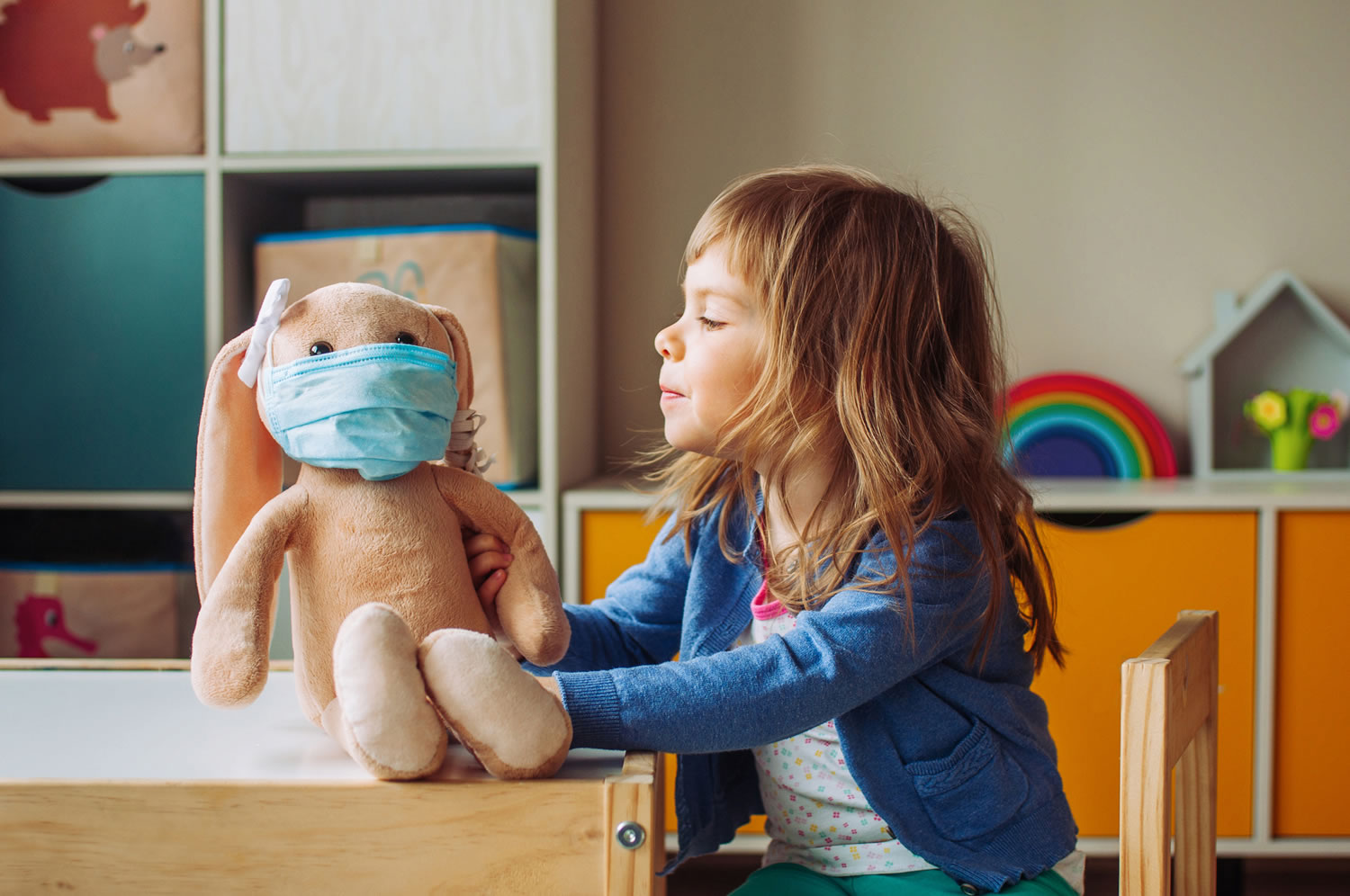Socialising children who have been in lockdown
Published on Tuesday, 14 September 2021
Last updated on Wednesday, 29 September 2021

Proper socialisation is essential for children in the early years. It helps young children to reach their developmental milestones, learn how to interact with others, develop a sense of self, learn how to empathise and so much more.
But in the wake of so much mandatory isolation, social distancing and COVID-19 enforced lockdowns, how have young children been impacted by a lack of opportunities to gain socialisation skills?
In this article we also ask how we can help them to readjust to attending early learning services in person rather than through online interactions (for those who have been in lockdown at home), and how to keep them safe with the disease still very much an issue.
One important consideration when reintroducing children to your service after they have been in isolation is to take note of what each child’s lockdown experience has been, and how it has affected them.
If possible, talk to parents or carers to learn what experiences they had, and take the time to talk to and observe the children themselves to see firsthand if and how they have changed.
Remember, some children may have been completely sheltered from any differences in their world and will continue as though next to nothing has changed. But others may have been more aware, having potentially experienced their parent’s anxiety over the pandemic, seen confronting news stories about the changes made around the world, or maybe even having lost a loved one to the disease.
Children’s mental, emotional and even physical health may have been impacted by lockdown rules and social isolation, as well as the many other stressors brought about by the pandemic.
When children return to your service after time at home, look for displays of anxiety or depression, an inability or unwillingness to interact with you or with other children in the class, and a regression of physical skills such as running, throwing and catching, climbing, balancing etc. for children who have not been given opportunities for active play.
First and foremost, for children who have been isolated and absent from care for significant periods, it is important to rebuild relationships between them and the staff at your centre, as well as relationships between the children. One way this can be approached is to offer small group visits for the children and their families or carers, taking appropriate covid precautions, before the children return to care for full days.
Stagger the visiting times to ensure there are not too many people in the centre at once, so that social distancing is easier and so that the children are not overwhelmed by large crowds straight away.
When the children do return to your service, you can start to rebuild relationships with them by simply being available to talk, to listen and to interact with them rather than worrying about planned activities straight away.
It’s important to first ensure their comfort and rebuild their trust in the situation and their educators, before pushing them too hard and too fast into group activities.
In an article on settling children back into learning services after lockdown, early learning educator Sonya McIntyre wrote, “connection, communication and relationships are really at the heart of the resettling process.” Simply sitting with the children, talking to them and being open to their comments and questions can help to ease any anxiety they may have and start to rebuild their trust in you as their educator.
When they are ready for the next step, you can set up spontaneous social play stations, where they can wander over to play by themselves or in groups when they feel more comfortable with the situation and with each other.
Social play that focuses on using imagination and creativity can be useful in breaking down barriers between children, as they work together to make decisions, solve problems and act out their chosen scenario.
Consider creating small world play stations, where groups of children can decide together how a scene will develop. Home corners, where children can pretend to be cooking in the kitchen, looking after babies of their own and more can be excellent role-playing situations to encourage cooperative play.
Outdoor play is another effective tool in making previously isolated children become more comfortable in social setups. Playing in green spaces has been proven to ease anxiety and diminish stress, while being outdoors where there is enough room to roam and have space to themselves, rather than being cloistered closer together in a classroom, may make children more comfortable about being in a group situation again.
Finally, a good way to help children become comfortable in your service again is to ensure that their parents and carers are comfortable with their attendance and confident in their safety.
By this stage, your service will have strict COVID-safe procedures in place to reduce spread, such as regular hand washing for children and staff, routine sanitisation of toys, furniture and shared spaces, mask wearing at drop off and pick up and restrictions on who can come into the centre.
Make families aware of the lengths you are going to ensure the health and safety of the children in your care, as their confidence in this will transmit to their children and make everyone more comfortable in care.
Related Articles

Genetic link to childhood emotional, social and psychiatric problems
Learn how emotional, social and psychiatric issues among children may indicate a higher genetic vulnerability to adult depression, according to new research out of the University of Queensland.

The impact of COVID-19 on young children and what you can do
How COVID-19 has impacted children and their families and what early educators can do to support them.

Social and emotional learning
Why early education settings are the ideal environment for children to gain skills in social and emotional learning and strategies for educators to scaffold learning.

